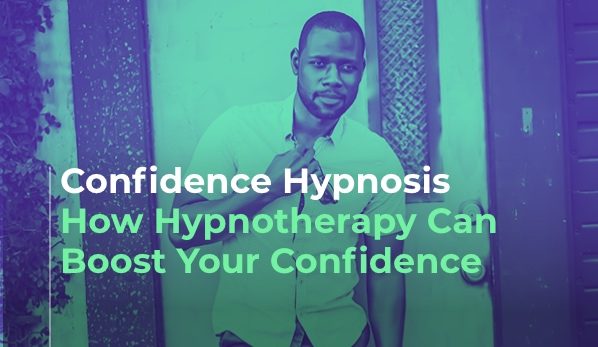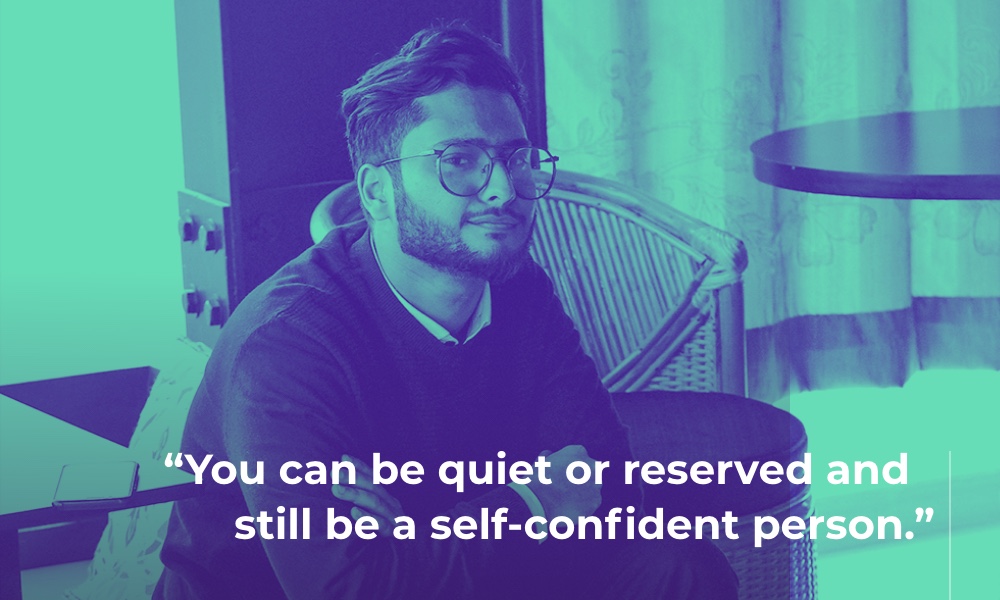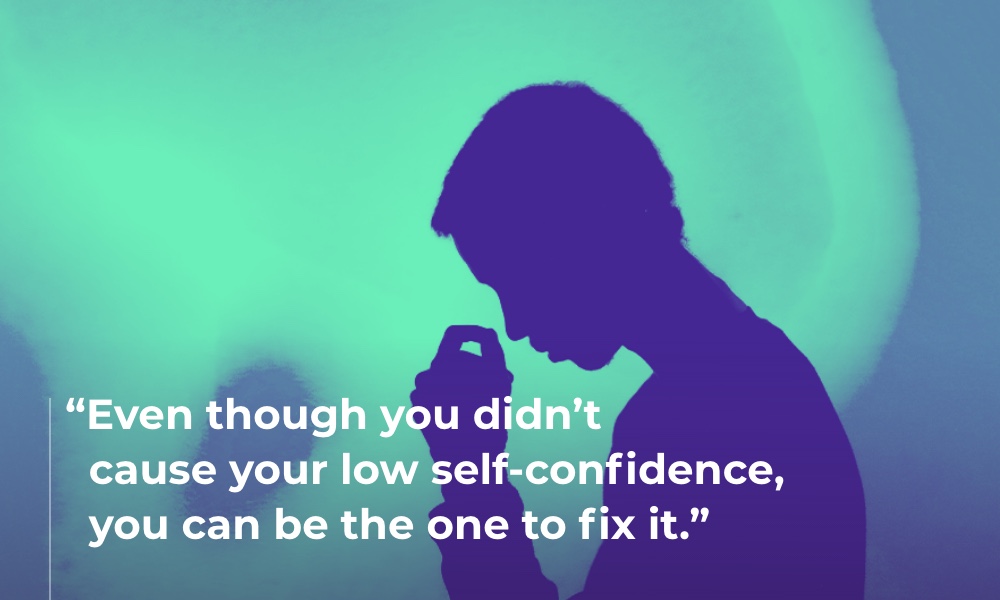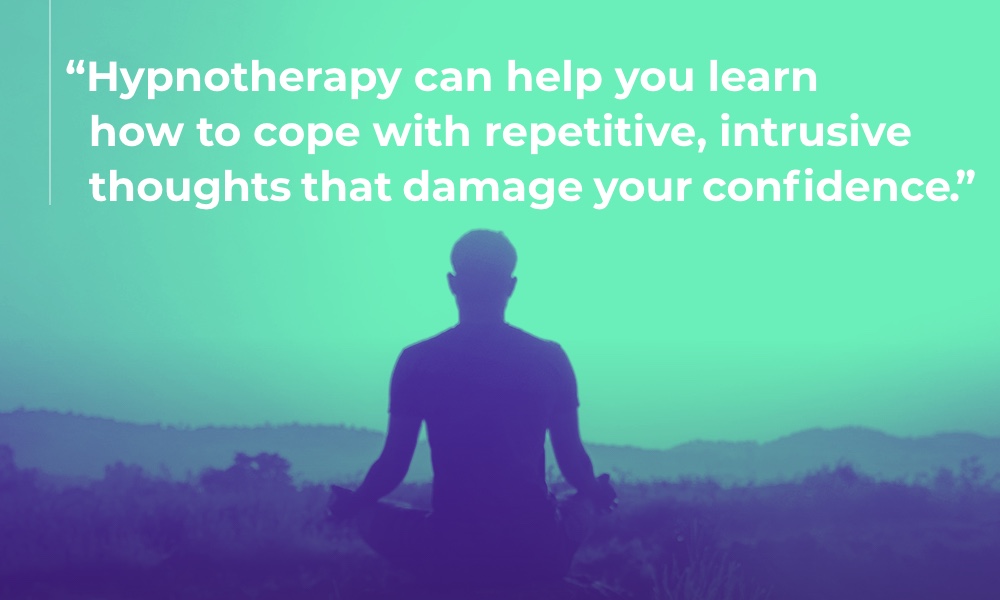Self-confidence and self-esteem are critical skills for high performers. Without these traits, you’ll struggle to be a good leader, pursue opportunities, or advocate for your ideas.
If you lack these important qualities, we recommend trying hypnotism for self-confidence and self-esteem. It’s a simple, natural way to develop a positive self-image and unlock the best version of yourself. Let’s get started!
Self-Confidence vs. Self-Esteem: What’s the Difference?
Self-confidence and self-esteem are sometimes used interchangeably, but they have subtle differences.
What Is Self-Confidence?
When you have self-confidence, you trust in yourself. In other words, you generally have faith in your judgement, decisions and abilities. Self-confidence doesn’t mean you think you’re always going to win or succeed, but you know you’ll be fine when you don’t.
When you’re self-confident, you’re not afraid to make mistakes, because you know that you can learn from them.
Self-confidence is a subtle self-assuredness and inner strength. It doesn’t necessarily look like being the loudest or boldest person in the room. You can be quiet or reserved and still be a self-confident person.
What Is Self-Esteem?
Think of self-esteem as your assessment of your own worth. When you have high self-esteem, you know that you’re automatically valuable. You don’t have to work to achieve your worth. People with high self-esteem are more likely to engage in healthy relationships and take calculated risks. They’re also less likely to let failure define them.
Your self-esteem is like a lens through which you see the world. It affects all of the decisions you make and the relationships you have with others. When you have poor self-esteem, you’re more likely to take criticism and negative events personally.
So what do self-confidence and self-esteem have in common? When you’re missing them, you find yourself running away—from your past, from what others think, and from anything else that threatens your sense of self. On the other hand, when you have high self-confidence and self-esteem, you’re moving toward the life you want. Doesn’t that sound better?
Challenges to Confidence and Self-Esteem
If you find yourself struggling with self-doubt, there are two things you should know:
- You’re not alone
- It’s probably not your fault!
Tons of factors lead to a lack of confidence, and many of them may have happened in childhood. When you’re young, your self-esteem is very fragile. Even if a negative event only happened once, it could affect you for life, making it difficult for your self-esteem to flourish.
You may have low self-esteem if younger you experienced:
- Bullying
- Abuse
- Overbearing or demanding parents
- Unrealistic expectations from authority figures, like coaches, teachers, or bosses
- An off-hand critical comment from an otherwise fantastic role model
Low self-confidence can also come from growing up in a society where your accomplishments are synonymous with your worth. Or it can come from consuming media that portrays perfection as the norm.
In other words, just about everyone experiences circumstances that take a wrecking ball to their self-worth. But remember that it’s likely not their fault.
The Dangers of Low Self-Confidence and Low Self-Esteem
Unfortunately, low self-esteem can be one of the largest stumbling blocks on the road to success. Those who don’t feel a strong sense of self-worth may be easily intimidated or struggle to connect with others. This can be a major setback because connection is essential for networking, building a business, and cultivating strong interpersonal relationships.
Moreover, those with low self-esteem are more likely to take failure and criticism personally. They allow it to derail them or even use it as an excuse to give up. Yet as any high performer knows, criticism and failure are not only a natural part of success—but are essential to it.
Finally, people with low self-confidence may find themselves paralyzed with indecision. They may be unable to take risks because they don’t believe they’ll make the right choices. This can lead to a lack of initiative in the workplace and frustration from partners, friends, and family members.
But here’s the good news: Even though you didn’t cause your low self-confidence, you can be the one to fix it. In fact, you’re the only one who can!
Hypnosis is a rewarding, accessible way to build self-love, self-confidence, and self-esteem, regardless of what caused these negative traits in the first place.
What Is Hypnosis?
Before you can understand how hypnosis helps self-confidence, you need to learn what hypnosis is! Think of hypnosis as being in an altered state where you’re both very at ease and very focused. You won’t fall asleep when you’re hypnotized, but you are in a hypnotic state, which may make it look like you’re asleep to an outside observer.
Your hypnotherapist or hypnotherapy app will lead you into a hypnotic trance. In this state, you’re deeply relaxed and highly suggestible. You’re more receptive than usual to helpful suggestions, affirmations, and ideas. And you internalize those concepts on a subconscious level—something that’s very hard to do in your waking state.
Take psychotherapy, for example. You may visit a traditional therapist for years to work on your self-esteem and self-confidence with only moderate success. However, hypnotherapy may instill a strong sense of confidence in you in just a couple of sessions.
Once in a relaxed and suggestive state, your hypnotherapist or app will use hypnosis techniques (like suggestions, metaphors, visualizations, affirmations, and more) to help you achieve your goal of better self-confidence.
Hypnosis isn’t something that feels foreign or frightening. In fact, some scientists argue that you put yourself in a state of self-hypnosis several times a day, like when you’re driving down a long stretch of highway, engrossed in a good book, or really focused on a project at work.
Hypnosis treats a range of conditions, including anxiety and chronic pain. It’s also used to help people cultivate an array of positive qualities, like better performance at work and of course, high self-confidence.
It’s also important to note that for hypnosis to work, you have to want to change, and you need to open yourself up to the idea that you can change and believe that you will, because if your brain doesn’t want to do (or doesn’t believe it can do) the suggestions provided, it won’t. Likewise, the same goes for suggestions that you don’t consent to.
How Hypnosis Improves Self-Confidence and Self-Esteem
There are several different ways that hypnosis can help you improve your self-worth and mental health.
- Hypnosis helps you let go of what doesn’t serve you. To cultivate a new positive thinking pattern, you must release the old, negative one. Hypnosis can help you recognize and release limiting beliefs about yourself, increasing your self-confidence.
- Hypnosis helps you face your fears. When certain situations or challenges trigger deep-seated fears, we tend to avoid them. And that can negatively impact self-esteem. Hypnosis helps get to the root of those fears and release them.
- Hypnosis can change your beliefs about yourself. Have you heard of positive affirmations? Many people find success repeating optimistic statements about themselves, such as “I am confident” or “I am worthy.” Science shows that these types of affirmations can actually impact our brain systems. Hypnosis takes affirmations one step further by offering them to you when you’re in a highly suggestive state. This makes it much easier for these beneficial self-beliefs to burrow into your subconscious mind and influence your behavior. And they keep working long after the hypnosis session ends.
- Hypnosis can help you identify the source of your insecurities. It’s hard to address the things that damage your self-confidence if you don’t know what they are. Hypnosis can help you dive into your subconscious to recall events from your past that may have damaged your self-esteem. Once you’ve identified them, it’s much easier to move on from them.
A Guided Confidence Hypnosis
If you’d like to try hypnosis for self-confidence, there’s no need to wait. We offer a full course on confidence on our app and below you can try Day 1 for free.
Frequently Asked Questions about Hypnosis for Self-Confidence
If you’re new to hypnosis for self-confidence, the prospect can seem intimidating. So we’re here to answer a few of the most common questions about hypnosis for self-confidence and self-esteem.
Does Hypnosis Work for Confidence?
Yes, hypnosis really does work for improving your confidence! It’s scientifically proven to target the sources of your low self-confidence, whether those include trauma, anxiety or even weight loss. Hypnotherapy for confidence works best when you have an open mind, and when you’re also taking other measures to care for your mental health and well-being.
Can Hypnotherapy Remove Unwanted Thoughts?
No type of therapy can remove the thoughts from your brain, but hypnotherapy can help you learn how to cope with repetitive, intrusive thoughts that damage your confidence. Hypnotherapy helps you reach the subconscious root of your negative thoughts, and then it reframes your relationship to them. Hypnotherapy helps your negative thoughts no longer rule you. Instead, it gives power to the thoughts that bolster your self-esteem.
Can You Be Hypnotized to Stop Anxiety?
Anxiety can wreak havoc on your self-esteem and everyday life, but luckily hypnotherapy can help you tackle it. Because it helps you deal with the source of your anxious feelings in your unconscious mind, hypnotherapy is an excellent complement to cognitive behavioral therapy (CBT).
More Ways to Build Self-Confidence
Hypnosis for confidence and self-esteem works best when you’re also taking other measures to improve your confidence, such as:
- Taking care of your physical health by getting seven to nine hours of sleep each night, regularly eating balanced meals, and getting frequent exercise
- Surrounding yourself with positivity and kind people who lift you up and don’t cause you to question your worth
- Regularly challenging yourself and taking calculated risks
- Exposing yourself to situations where you will fail, and allowing yourself to learn from the failure rather than let it define you
- Setting small daily goals for yourself and making it a priority to achieve them
- Adhering to your own values, even when it’s not popular or convenient
- Following through on your commitments and avoiding procrastination
Using Primed Mind to Build Confidence
A hypnotherapy app is an excellent way to access the benefits of hypnosis for confidence without the wait times, travel, and price tag that come with an in-person therapist. Primed Mind is a mindset coaching app developed by Elliot Roe, one of the world’s leading hypnotherapists.
Primed Mind is free to download. It uses hypnotic audio primers to induce you into a relaxed, highly suggestible state. Then, you hear helpful suggestions, just like in a hypnotherapist’s office. Each session is 5-20 minutes long and designed to help you transform your life and meet your goals from the convenience of your phone or tablet.
Primed Mind has an array of confidence-boosting hypnosis audio recordings to choose from—from a power primer on self-confidence to deep primers on mastering public speaking and getting a promotion. Whatever you need to be confident in, there’s a primer designed to help with you. Get started today!





